Windows Juggernaut vs. a Cheap Mac: Speed Comparison
Ever wondered if shelling out for a top-tier Windows laptop really delivers the bang for your buck in development speed, or if a budget Mac mini could punch above its weight? Stop wondering, and start reading, because I've got the answers for you.
As someone who's juggled both - a 4000 USD developer laptop (Dell XPS 14 with insane specs) and a 750 USD Mac mini that cost a fraction - I put them head-to-head in build speed tests.
Read on to find out how the machines compared in my real-world development scenarios - which are mostly .NET and web development focused. Your mileage may vary, but at least this is something.
Background
Windows 11 is the default operating system for laptops and PCs. It has a massive market share, and most software is developed and tested on Windows.
According to Statista, as of 2023 Windows is the most used desktop/laptop operating system among developers, with 64% of developers using it (and you would probably not believe it, but according to the wizards of Statista, Windows' market share is GROWING).
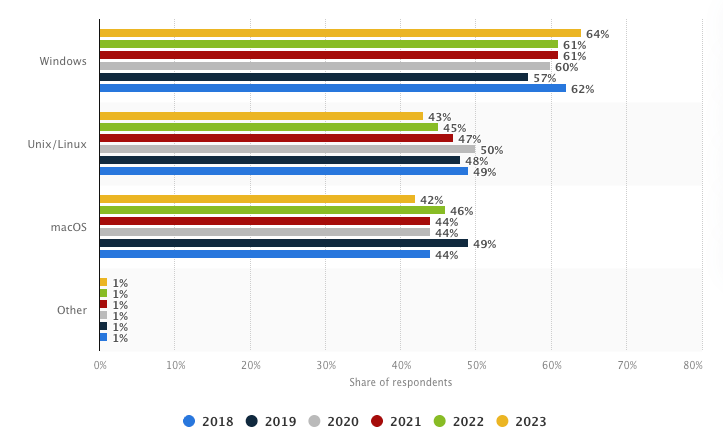
Unix/Linux came second with 43% (but dropping) and macOS third with 42% (keeping fairly stable).
And throughout my career as a software developer, I've mostly used Windows machines. My current main machine is a Dell XPS 14 laptop, which is objectively a certified BEAST of a machine.
I mean, come on: a whopping 64 GB of RAM, the absolutely beastly Intel Core Ultra 7 processor with 16 cores (22 logical) of madness, industry-defining RTX 4050 graphics card, an NPU, and the fastest SSD you could hope for.
But in the last 9 months or so, I've done most of my development work on a bargain bin Mac mini, even though I greatly dislike macOS as an operating system.
My Mac mini is a cheapo m4 model with 16GB of RAM and like 10 cores. It has the old macOS version (the one that looks like it was drawn with crayons, not the one that looks like Microsoft is trying to copy it) and cost about 25% of what my XPS cost.
Yet, it is surprisingly fast. Its biggest weakness is the short battery life (0 minutes), but even that is comparable to the XPS.
My XPS is running in ultra performance mode all the time, because otherwise it lags like crazy. Yet even then, there are differences between running on battery and when plugged in. And that's why I ran builds on a few projects on both battery and when plugged in.
And as you might know if you've read my previous blog posts, on the XPS I also have Dev Drive enabled, which should make file access and builds faster.
I ran all of the project configurations a few times to ensure the results are consistent, and if they were, grabbed a screenshot of each.
Let's begin!
Build speed comparisons
I have a few different project types to build, so let's see how they compare.
On each, I'll share the result on XPS on battery, XPS when plugged in, and Mac mini.
SSG (Static Site Generator) project build (no site generation)
I made sure to run a rebuild configuration on JetBrains Rider to build the library that actually builds the static site, but without generating the site itself.
XPS
First on battery:
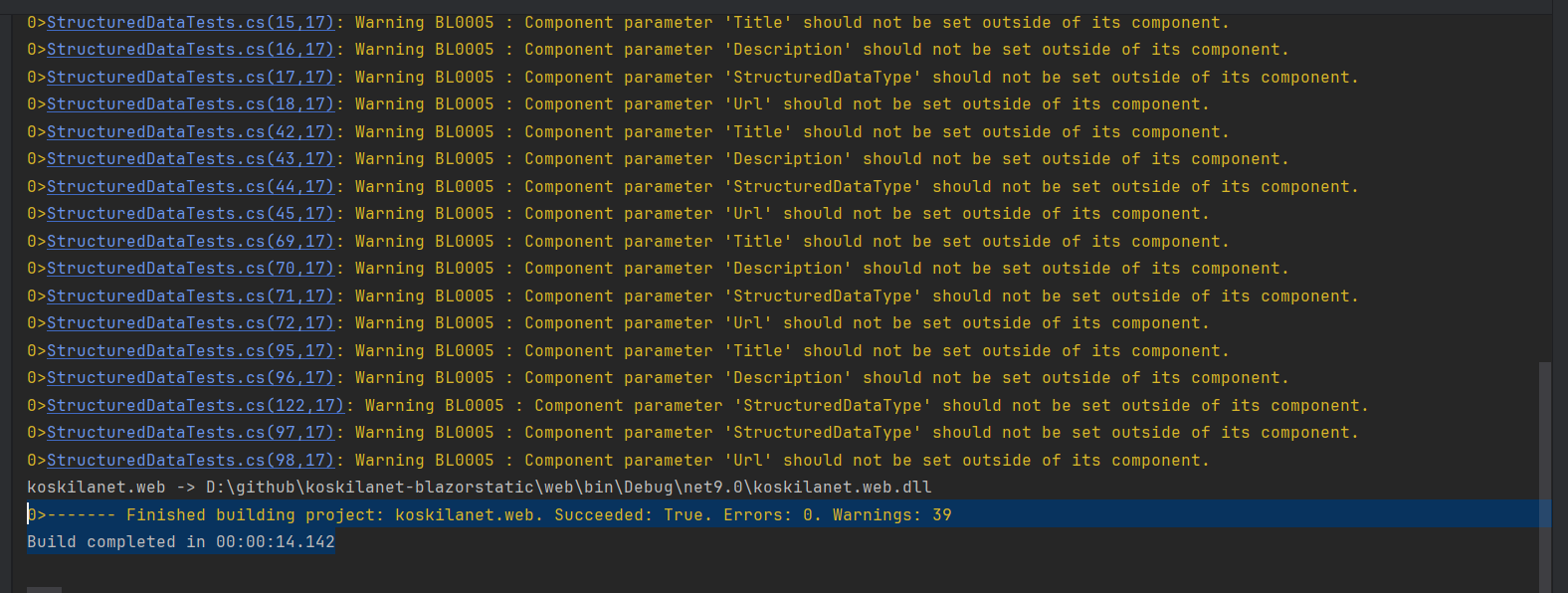
Result: 14.142 seconds
Then when plugged in:
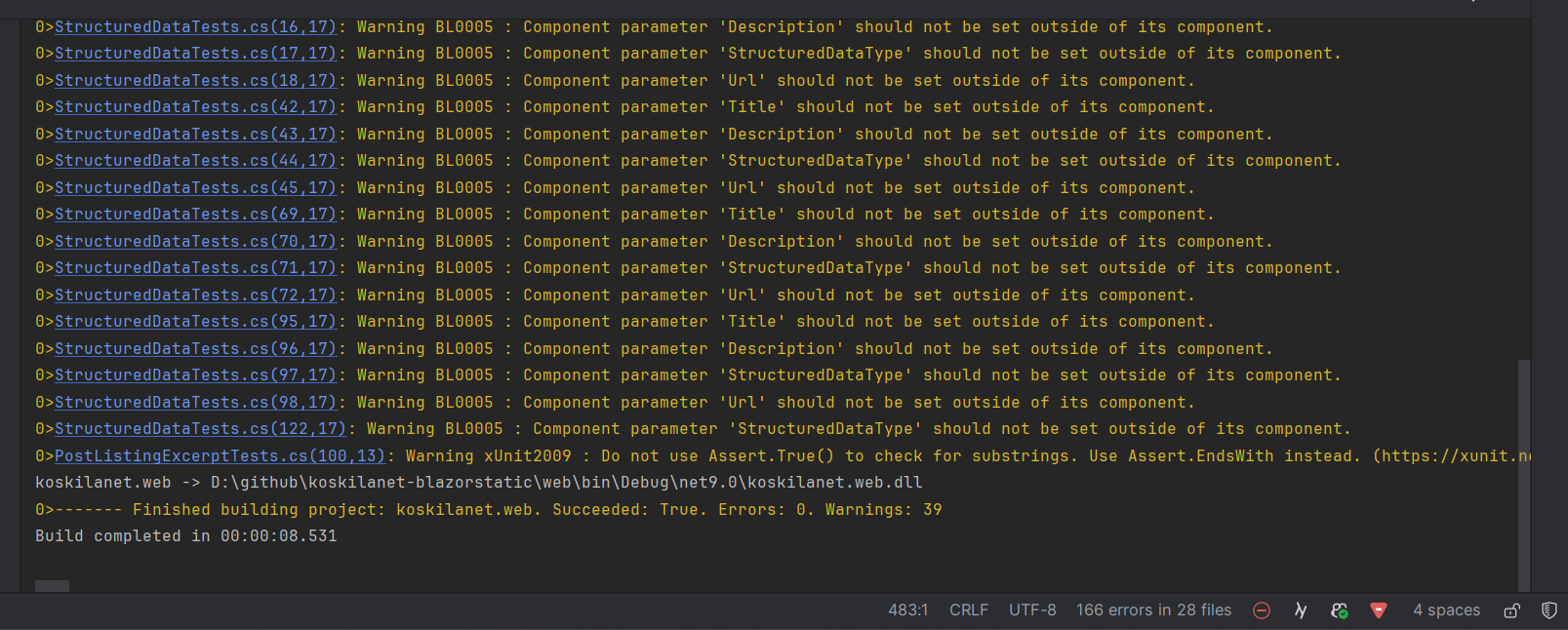
Result: 8.531 seconds. 40% faster.
Very reasonable, altogether. I can wait for that.
And how does the Mac mini do?
Mac mini

Result: 3.774 seconds. That's fast.
Summary
XPS when plugged in was about 40% faster than on battery.
mac mini was about 56% faster than XPS when plugged in. But this is a very small project, so the differences aren't that big in absolute terms.
SSG project full build (with site generation)
This build will generate around 600 pages based on my blog, built on Blazor Static.
I ran it in JetBrains Rider again, but in reality, it's just a command along the lines of dotnet run --project koskilanet.web.csproj --launch-profile prod, so the IDE shouldn't matter here.
I didn't rebuild the binaries, just the page generation.
I did clear the output folder before each run to make sure the build is clean.
XPS
First on battery:
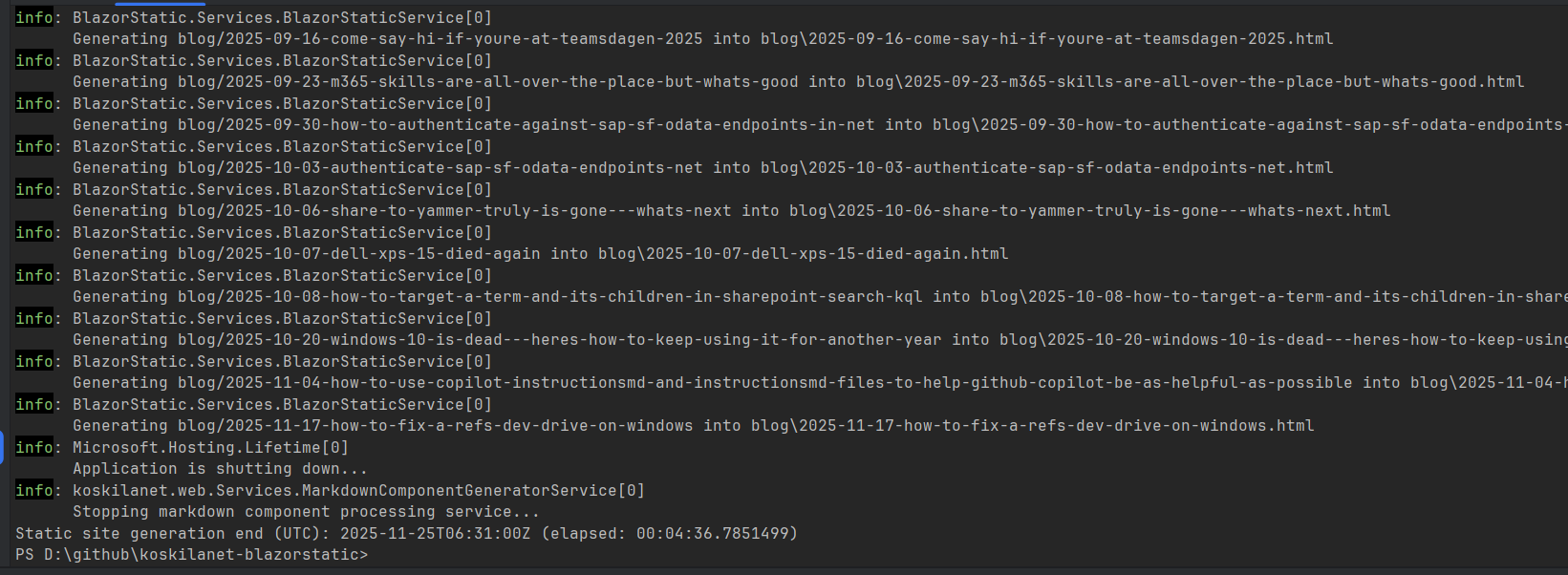
Result: 276.79 seconds. Almost 5 minutes.
Ehh, this is fine. It's got a lot of small files to create. Dev Drive is optimized for that, but it is still slow.
Then when plugged in:
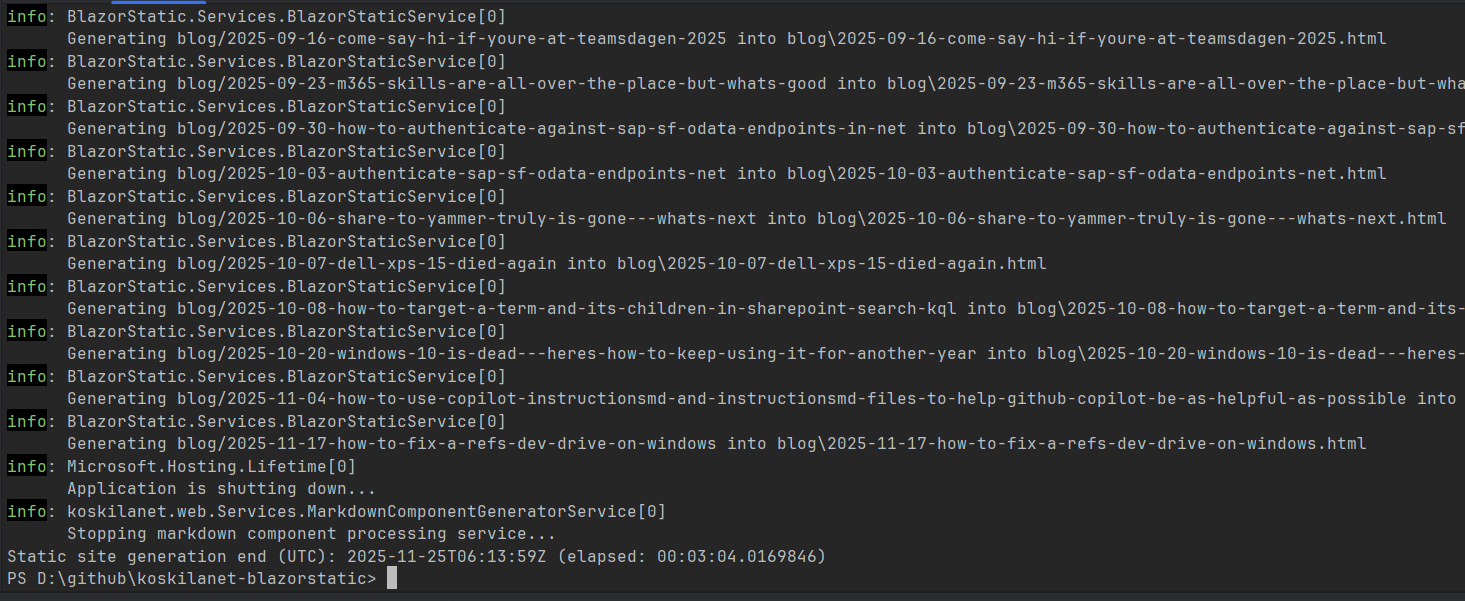
Result: 184.02 seconds. Much faster! I like that.
But what about the Mac?
Mac mini

Result: 12.544 seconds.
Summary
XPS when plugged in was about 34% faster than on battery.
mac mini was about 93% faster than XPS when plugged in.
I guess I don't really need to justify the Mac, do I? Less than a quarter of the price, and over 10x faster when a lot of files are involved.
CLI tool project
This is a simple console application project that builds some CLI tooling.
XPS
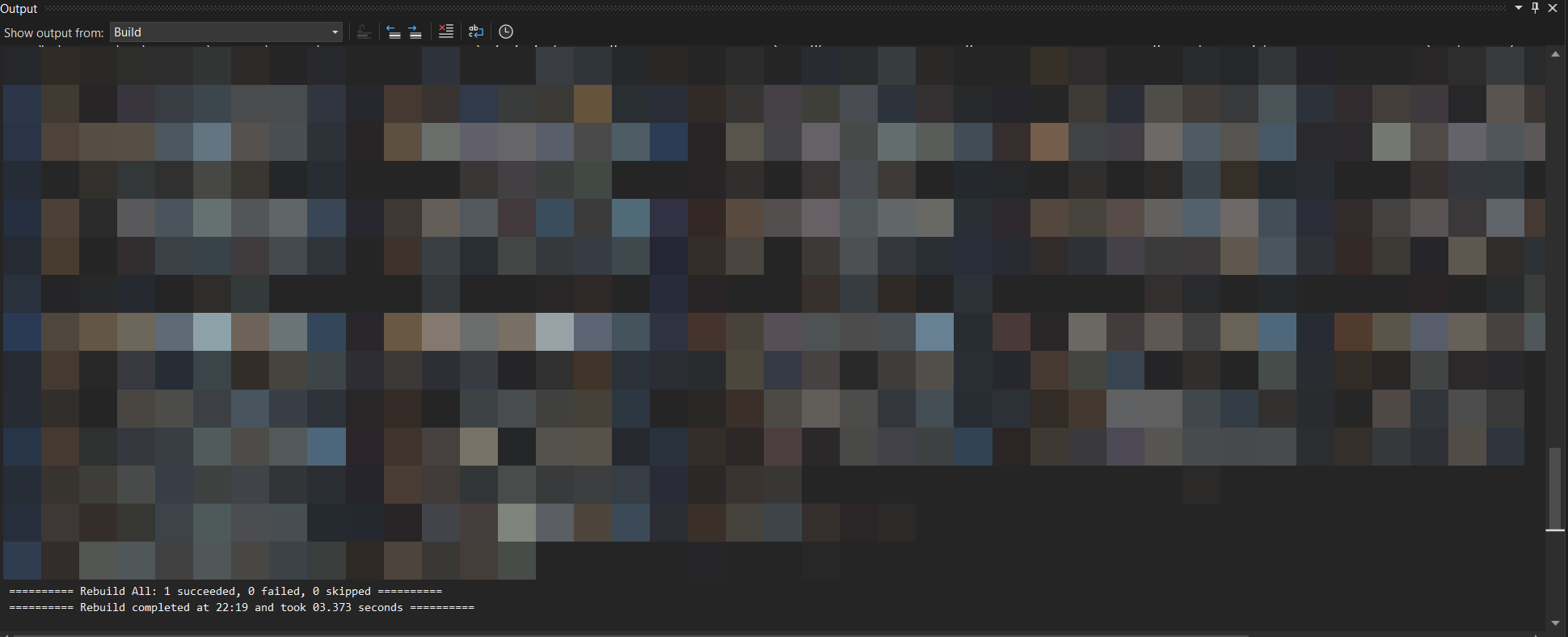
Result: 3.373 seconds.
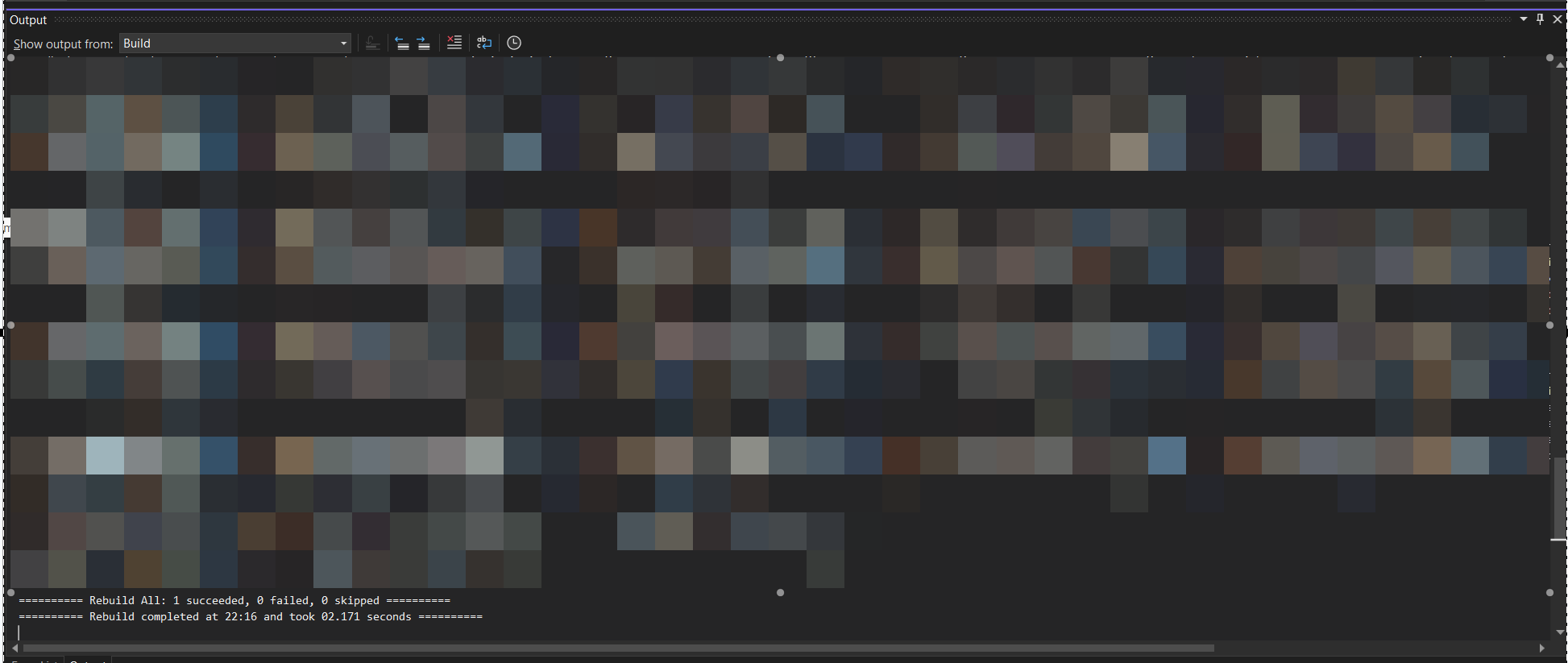
Result: 2.171 seconds.
Mac mini
No Visual Studio available for Mac, so I ran it in JetBrains Rider instead.

Result: 2.357 seconds.
Summary
All of these builds were pretty fast, so the differences aren't that big.
XPS when plugged in was about 36% faster than on battery.
Mac mini was about 9% slower than XPS when plugged in. That's a first!
A customer project
This is a customer project of ours, a web application built with .NET 7 (shhh, we'll update it later). I'll ignore the frontend build for now (we'll just see the same results as we did with full site generation), and just focus on the back-end build.
XPS
First on battery:
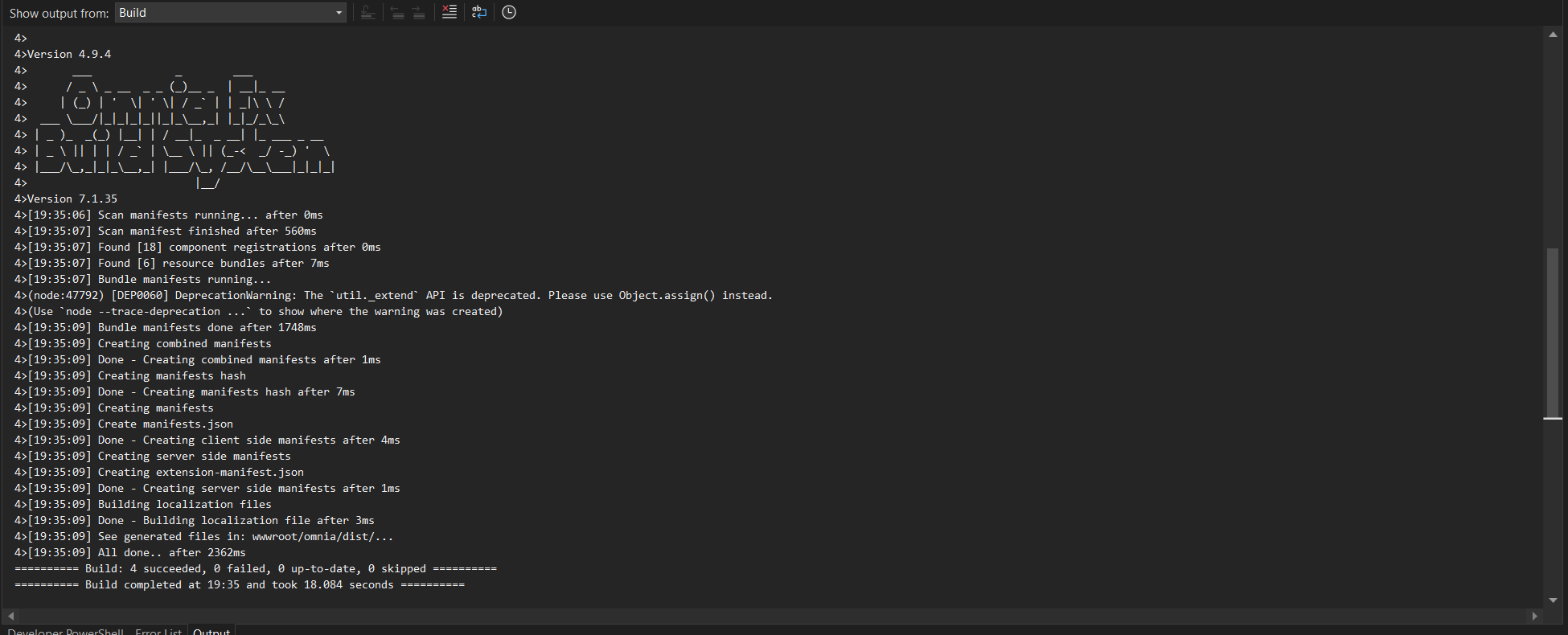
Result: 18.084 seconds.
Then when plugged in:
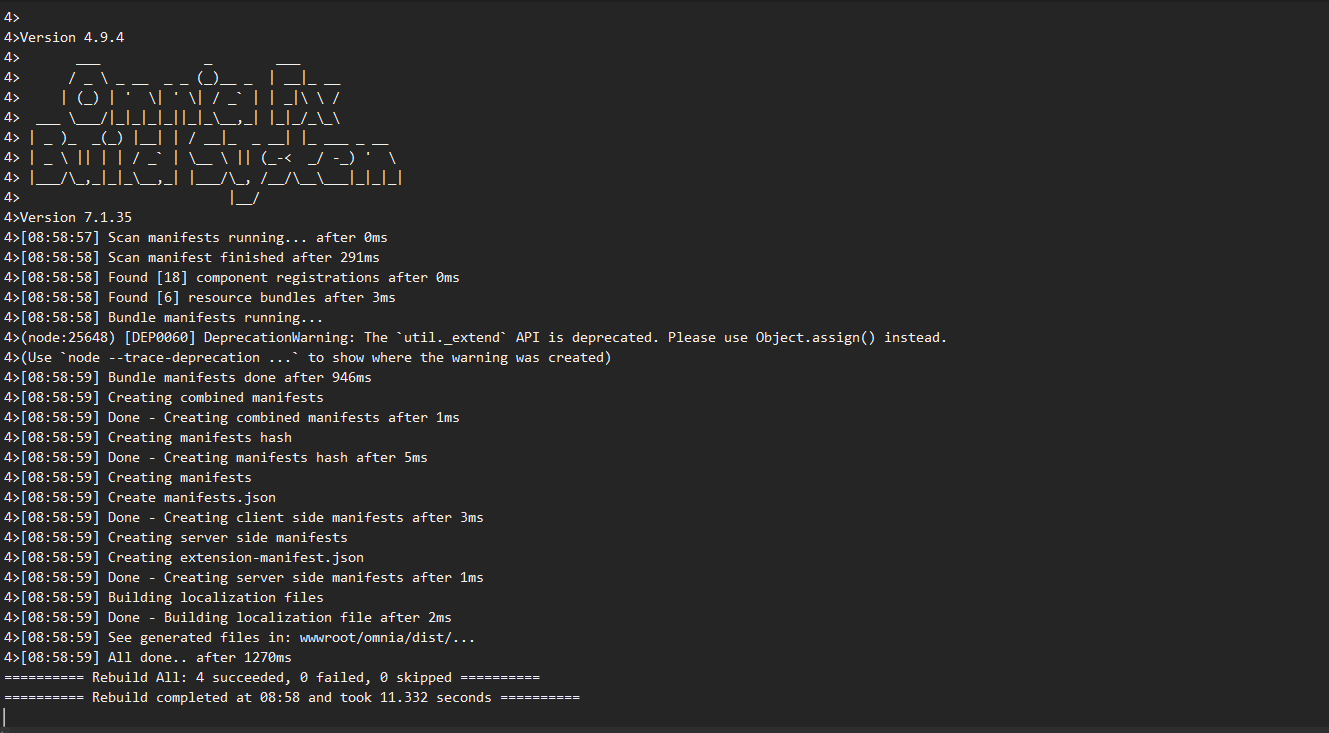
Result: 11.332 seconds.
Mac mini
I couldn't run this in Visual Studio, which is our main IDE for customer projects, but luckily it DOES build in JetBrains Rider.
And it doesn't take super long either.
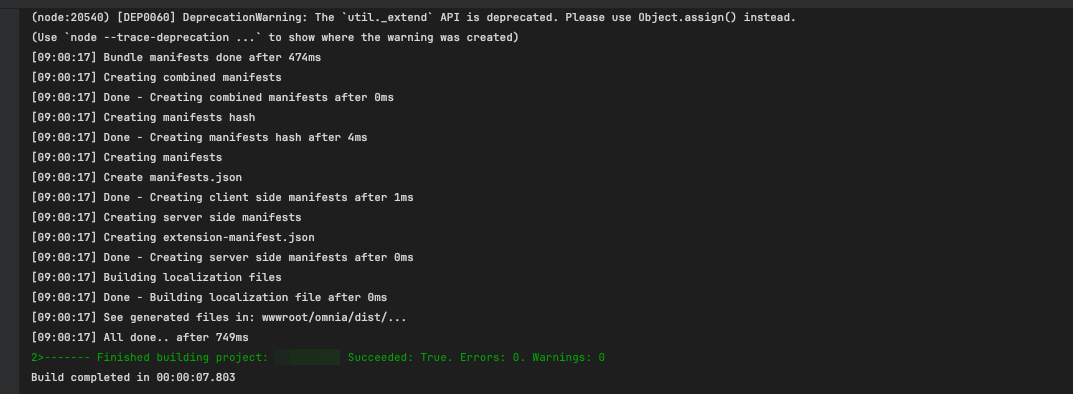
Result: 4.975 seconds.
Summary
XPS when plugged in was about 37% faster than on battery.
mac mini was about 56% faster than XPS when plugged in.
Conclusion
Pay less, work faster. I'd say that's a win-win situation.
Of course, one can argue that Dell really dropped the ball with their XPS line recently, and that I should be getting a more modern machine with an ARM processor - so it could compete better with the M-series macs.
But the fact still is that these are both 2024 hardware, and the mac mini is just so much faster in real-world development scenarios.
The only downside is having to deal with macOS - and even that has its perks (I've only seen a BSOD once or twice in the last 9 months, and in case you were wondering, not on the Mac).
So, my short buying advice is this:
- If you're looking for the value option, get a Mac mini.
- If you're looking for the performance option, get a Big Mac (or just upgrade the mini - with more RAM and a beefier CPU this machine would be unstoppable).
- Even if you develop for Azure, M365 and .NET, get a Mac.
The performance and stability are just too good to ignore at this price point.
I don't have an affiliate link to shill here, so just get it from wherever you want.
Comments
No comments yet.